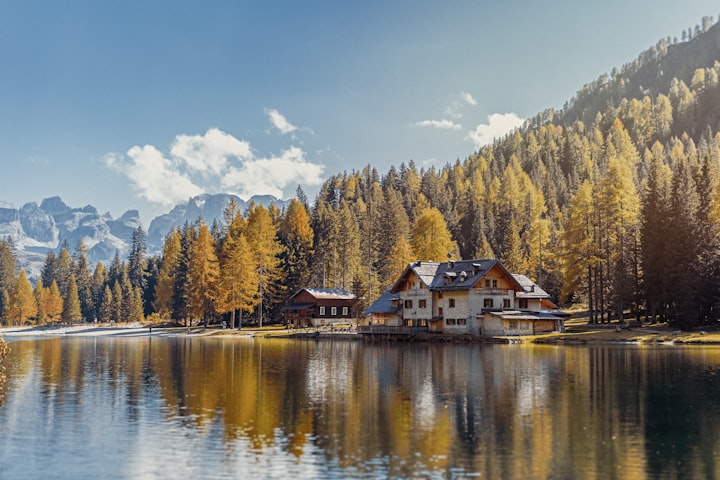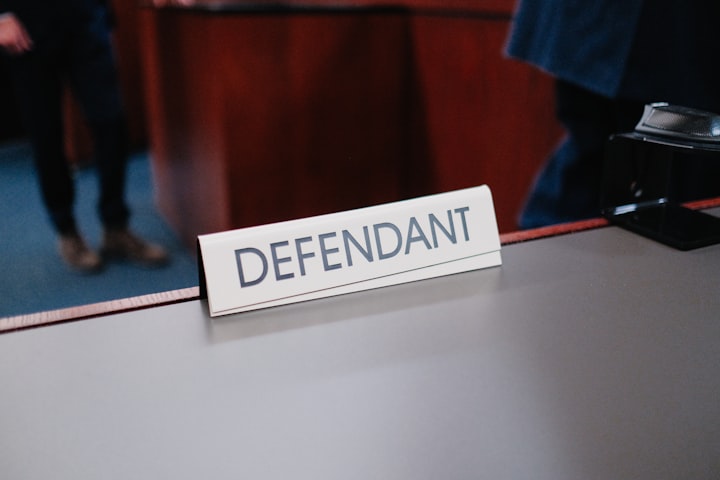
I grew up in a small and charming fishing village called Saint Louvrez. A few kilometres away from the sparkling blue ponds stemming from the ocean île de rien, with just a poorly constructed pack of bamboo acting as the bridge. Saint Louvrez is sentimental, akin to the warm nature of a loving mother. It is littered with wooden houses and stonewalled bungalows, most of which are on the verge of collapse. The debris from those who have succumbed to age, provided the agile kids with tools to build miniature houses. We are the north on the country maps, and the wind on this side is merciless in all seasons. It whistles through the dimly lit houses in the mornings and rustles the leaves into a sweet lullaby at night. Even though polished oak doors weren’t a thing, the white cotton curtains used as interior alternatives made our games of hide and seek way too facile. But we still played anyway. We were young, happy and fearless.
The waves of île de rien crawl gently at night, towards the shore of a bright city across our village. Its fluorescent lights and tall skinny buildings juxtapose the distinct golden glow of our primitive lanterns, visible through the windows of our bungalows. My mother always said the city lacks character, warmth and corners for mischievous boys like me to hide from my father’s belt. I believed her. And so I was always sure that we were much luckier than those with the gloomy grey skies and the very heavy clouds.
I was born at the end of autumn, an especially joyful boy with a cheeky grin plastered on my asymmetrical face. My mother always said I took what was left of the warm and cosy feeling that accompanied that time of the year. Autumn by far is my favourite season. It is the gold and crimson treatments on the trees, juxtaposing the baby blue reflection of the ponds. The teasing nature of the shy rain and the soft breeze of the evening wind, chaotic in its movements but soothing in its sound. Long but slow-paced days, late saffron sunsets, and freshly knitted sweaters from Ma Edwards. Red and yellow ones, just like the fallen hissing leaves, whooshing along the narrow countryside roads. All of these complimented the charming nature of the village so beautifully. And we often referred to autumn as Saint Louvrez’s first love.
The soil here is barren. Loose in texture with too much moisture. We toil the ground for vegetables like home-grown tomatoes and rhubarb, but their flourishment is often miraculous. And so alongside the ever so sarcastic Pa Edwards, our doctor, the only occupation in our village is fishing.
At the beginning of each autumn, when the water is cast with the reflection of colourful trees and its bottom is filled with juvenile amphibians and hibernating insects, the fishing season will begin. My father, a man of very little words, would spend all evening getting his supplies ready and spend his night awake in order to secure a good spot at the ponds, one which would yield in a bountiful of fish and red lobsters. He would sit around at night with his wooden pipe at the corner of his pert mouth, whistling and tapping his left foot in rhythm, awaiting the first appearance of the morning sun. My brother and I knew not to stay awake past 7, lest the itching hands of my fatigued father lands on our bare backs. We spent such days in the colourful garden which served as a courtyard for Ma Edwards.
Ma Edwards was the only person in the village who could keep the kids from interfering in such an important season. She would bribe us with sweet caramel treats from the city as we listened to her many scary cautionary tales. She was especially good at them and her high-pitched voice created vivid imaginations to the stories she told. But the delightful taste of the sticky sweets, was enough to distract us from stories of the fate of those who stuck their feet beyond their night sheets. And whilst we listened to Ma Edwards’ haunting stories, our parents prepared their hooks and sinking lines.
After the sweets run out, we would take the longest routes to our respective houses. Mischievous, young and carefree, we would gallop home, running after one another with rocks and broken stems. Upon our arrival at home, we would be greeted with the gamey smell of smoked fish, which my mother prepared for sale after each of my father’s fishing trips. The rest of the autumn evenings are usually accompanied by the combination of the nostalgic smell of a campfire and the petrichor emanating from the wet soil.
Life was good. And I assumed I had everything I needed, due to my father’s seemingly successful visits to the ponds. That is until I met Kevin.
On my 7th birthday, my mother cooked my favourite meal of rice and vegetables. She served me a bigger ration than usual, a clue that indicated I would be coming along to her small stall in the village’s only market. She had spent the morning preparing three batches of smoked salmon, which she had planned to sell to one of her usual customers travelling in from the city. I had helped with separating the pieces by size, into heaps, feeling very confident about my contribution. The smallest sizes had the smallest heaps, not because they weren’t plentiful, but because I had stuffed a few in my mouth each time my mother looked away. This didn’t last long as she soon caught me, banning me from the kitchen and ordering me to get dressed for the market. I remember sitting down on my bed, dejected at my mother’s earlier outburst as I put on my favourite shoes.
My brother and I had a ranking system for most things. We would compete on who could successfully hide my father’s lighters. Who got higher grades at school. And whose shoe lasts the longest. And even though my brown shoe had taken me around the village and beyond, and the soles had become worn out, it was the highest-ranking of the two. Something which I leveraged against my brother every dinner. And so as I walked proudly in the brand new white shirt I had gotten for my birthday, and my award-winning shoes, I knew the early rising of the sun would not be the only indication of a good day.
The market itself, was loud and overcrowded as it usually is towards the end of Autumn. The distance between the makeshift stalls was non-existent, leaving buyers with no choice but to stand around our stall, blocking access to our potential customers. We ended up waiting for hours before the customer from the city arrived. He had been held up by his wife and had no choice but to bring along his young son, Kevin, in a bid to make his slot. Kevin was around the same age as me, but he was much smaller in stature and spoke with what seemed like my accent in italics, although I would assume he must have felt the same about mine. Dressed in black chino shorts, a white buttoned-up shirt, black leather shoes and a silver broach, he looked like a miniature version of his father. Only he was quiet, aloof and shy.
As our parents haggled about little differences in the price of the goods, we became bored and drifted into the crowd. It wasn’t long before we chased each other along the earthen side roads that branched off the markets, unconscious of our increasing distance away from our parents. The roads were too quiet and humdrum for two roguish boys hoping for an adventure, so we took a detour into the narrow path dividing the trees in the woods. But our adventure didn’t last very long, as the sounds of a branch breaking were soon followed by a sharp cry. Kevin had fallen, and since I followed closely behind him, I soon found my face in the mud along with him. We picked ourselves up quickly, examining the damage we had done in what felt like the blink of an eye. Frightened by my mother’s inevitable reaction to my now brown shirt, I burst into tears. But Kevin on the other hand, seemed unperturbed.
“Why are you crying?” He asked, watching in confusion as I buried my head in my laps trying to come up with a passable excuse for my behaviour.
“Mother would be mad, I’ve ruined my shirt.” I replied tearily, in between sniffs .
“Don’t you have others?” He asked, as he removed the tiny prickly thorns that had stuck to his shirt.
To me, a boy only needed two shirts, one for school and the other for church and special occasions. Both of mine hanged from our wooden rack, with my favourite pair of khaki shorts sitting in the middle, a few inches away from my brother’s black ones. Underneath it housed my old brown shoes and my brother’s new ones which he had accepted hesitatingly as his Christmas present. But Kevin, on the other hand, boasted of a selection of shoes and shirts, something that seemed strange to me.
In the midst of all of this, I had ignored the growing ache in my mouth. Unaware of the small gash on his chin, Kevin had pointed out my bloody mouth and my missing teeth. After a few moments of feeling sorry for ourselves, we heard the sounds of my mother’s pink pumps approaching speedily from the road behind us and we froze in terror.
The journey home was long. It was windy and dark, and I had spent the better part of it trying to digest my encounter with Kevin. So even though my mother had lashed out at least seven different punishments, the questions ruminating on my mind was an easy distraction. It was, therefore, no surprise that it came bursting out of my mouth a few minutes later, ruining the silence that had built up between us.
“Mum, are we poor?” I asked, confidently awaiting my mother’s confirmation that Kevin’s observations earlier was false.
But my mother, tired and angry at my antics earlier, merely turned to look at me, her sharp gaze meeting mine for a second before she sighed heavily and urged me to walk faster.
Once home, my soiled white shirt was the least of my parent’s worries. It was going to be the worst winter in 20 years and our roof needed urgent repair, something I was not surprised about, since the house I had regarded as my palace had suddenly taken on a less royal character since Kevin’s revelation. Pa Edwards had visited. He advised my parents that I’d need some braces urgently to reverse the damage I had done to my teeth. I could see my father’s doleful face as Pa Edwards revealed the costs of my mischief.
The only relief from my guilt and sorrow was Ma Edward’s presence. As my parents argued in the adjacent room about my teeth and the tiny fraction of money left from the autumn sales, I sat on Ma Edwards’ laps with a warm and watery bowl of fish soup, eyeing my tattered shoes in the corner. Wrapped in her cosy arms, I felt safe and snug. She whispered gently to me about the cold winter approaching and warned me to keep my troublesome nature away from the frozen ponds. If I promised to do this, she’d knit much thicker sweaters than the ones I had for last winter. Having never experienced a winter as cold as the one that knocked on the doors of Saint Louvrez, I had one pressing question to ask.
“Ma, what happens when the ponds get frozen?”
But just like my mother, she looked at me briefly, sighed heavily and urged me to drink my soup faster.
About the Creator
Damilola
poet, wanderer, writer.






Comments (1)
Fascinating story